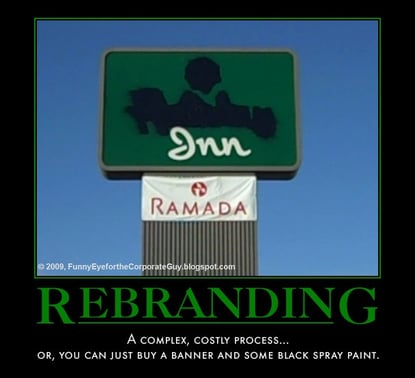The last few years have brought about an explosion of online do it yourself or DIY apps and tools. As disruptive innovation is overturning traditional value organizing and value delivery institutions (think publishers, broadcasters, medical diagnostics, and market researchers, among others), individuals with little or no expertise are able to actually or apparently perform as if they are experts.
When a DIY Approach Works
I am a big proponent of using smart, strategic DIY apps where they serve a bigger purpose and lead an individual or organization to dramatically greater success than depending on traditional approaches.
One example of my belief in DIY was a conversation at a recent event.
I was trying to convince a business owner of his ability and natural expertise in creating his own blog content rather than hiring an outside social media provider to write blog content for him. An SEO specialist is not going to be able to deliver the authenticity and personal insight he would convey as it churns out generalized content on his area of business expertise. The business owner’s ability to create DIY content with available writing apps far outweighs the SEO expertise an outside party might deliver.
When DIY Apps Lead to Crappy Performance
Making sound decisions on using DIY apps takes solid strategic thinking, and my DIY support is not universal.
Later the day of the event where I was discussing blogging with the business owner, the event's sponsoring organization reminded me why I only selectively support using DIY apps unassisted.
Here was the first question on the DIY post-event online survey the event's organizer sent out that afternoon.
Notice the big problem?
Maybe someone who isn't in market research wouldn't spot it, but the labels on the survey scale are screwed up. “Satisfied” and “somewhat satisfied,” along with “dissatisfied” and “somewhat dissatisfied” are both reversed in order. So when respondents completed the survey, the event organizer has no way of knowing whether someone responded to the order the labels are shown, or, out of habit, the typical order suggested by the end and mid-points on the scale.
While the event organizer was able to gain speed and flexibility through using a DIY online market research tool such as SurveyMonkey, the survey results it has are complete crap and totally unusable.
So how is DIY going for this organization absent the expertise of someone knowing how to develop and administer a market research survey? And do not forget to consider the wasted time of the event attendees (a number of whom likely ARE market researchers) who paid upwards of $100 to attend the event. What about that?
Smart DIY Uses
Embrace DIY. Use DIY. But do the strategic thinking and be careful the crappy performance DIY apps can create. Take advantage of DIY apps where they lead to smart, strategic advantage. But pay attention if your DIY tools of choice do not have the safety mechanisms to keep you from making "fatal" DIY mistakes. If your app does not monitor and manage your performance, you are still going to need experts to make sure you perform expertly. – Mike Brown
If you enjoyed this article, subscribe to the free Brainzooming email updates.
The Brainzooming Group helps make smart organizations more successful by rapidly expanding their strategic options and creating innovative plans they can efficiently implement. Email us at info@brainzooming.com or call us at 816-509-5320 to learn how we can help you enhance your strategy and implementation efforts.






